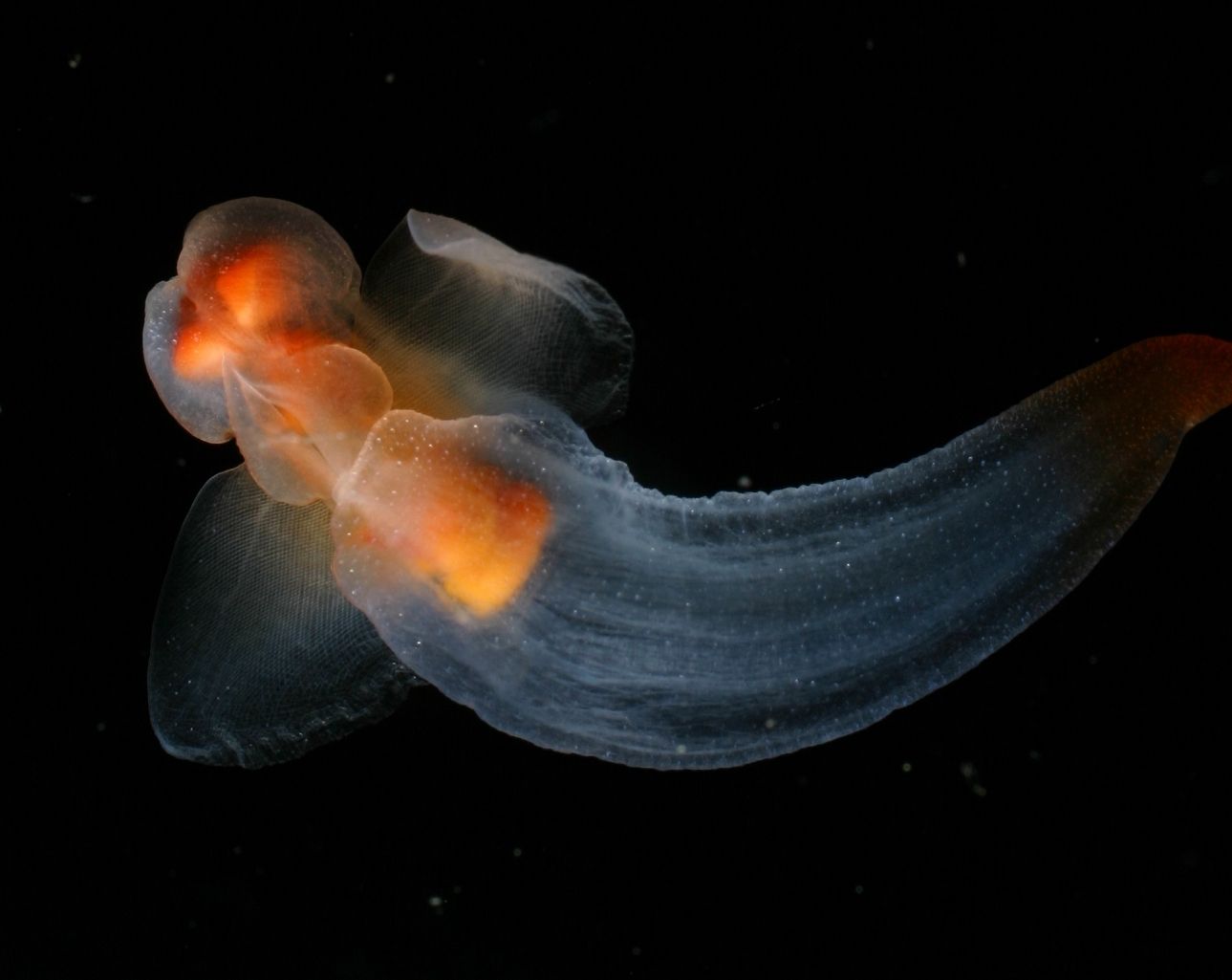
Some animals kidnap sea snails to carry on their backs to help ward off predators.
Researchers in Germany and Australia found that some animals will use the sea snail's ability to produce a chemical deterrent that repels predators to gain protection. Published in the journal Marine Biodiversity last week, the study revealed that those animals will carry the snails against the snail's will.
The sea snail, or pteropod or sea angel, are tiny, shell-less snails that only reach 5 centimeters long at their largest. To get around, the snail will flap their foot wings, according to the Smithsonian Institution. The animals uses a chemical deterrent to protect themselves from animals like the cod icefish. Hyperiidean amphipods, which are a type of small crustacean, are often eaten by large predators, like birds and fish. Dr. Charlotte Havermans of the Alfred Wegener Institute and the University of Bremen is studying the creatures because they're an important part of the food chain. However, when taking the animals on board a research vessel, she noticed something unusual.
"A few of the amphipods carried something unusual on their backs. On closer inspection, I realized that they were carrying pteropods piggyback," Havermans said in a statement. "We were wondering whether these tandems occur as frequently in the open ocean as in coastal waters—and whether both animals benefit from the relationship."
Many other species are known to form beneficial partnerships, called symbiotic relationships. These include the Hawaiian bobtail squid, which scientists discovered uses bacteria to protect its eggs. The squid also partners up with bacteria that are bioluminescent. The bacteria lights up the squid's belly, tricking predators into thinking it's the moon. For both of these bacteria, they're given a safe, food-filled home in return.
However, the scientists think that the sea snails don't get anything in return for its relationship with the amphipods. The amphipods trap the sea snails onto their backs using two legs. The snails are not able to escape and can't actively hunt for food, and therefore could starve to death. However, the scientists acknowledge that they don't know the full extent of the relationship between the species, as they're often crushed by nets when taken from the water.
"In the future, we will hopefully be able to use suitable underwater technologies with high-definition cameras to investigate even the smallest life forms in their habitat," Havermans said. "This will provide insights into the numerous exciting mysteries of interspecific interactions, which have so far remained hidden for biologists—but which undoubtedly play an important role in predator-prey relationships in the ocean."
Uncommon Knowledge
Newsweek is committed to challenging conventional wisdom and finding connections in the search for common ground.
Newsweek is committed to challenging conventional wisdom and finding connections in the search for common ground.
About the writer
To read how Newsweek uses AI as a newsroom tool, Click here.








